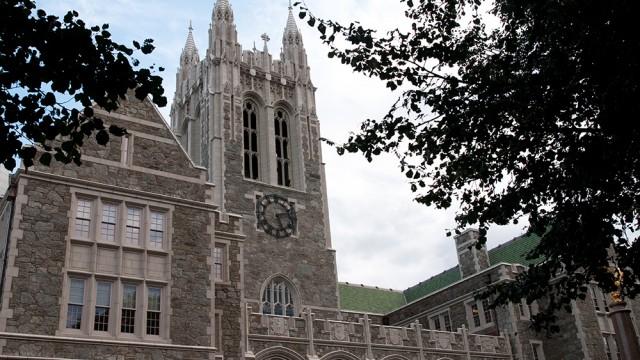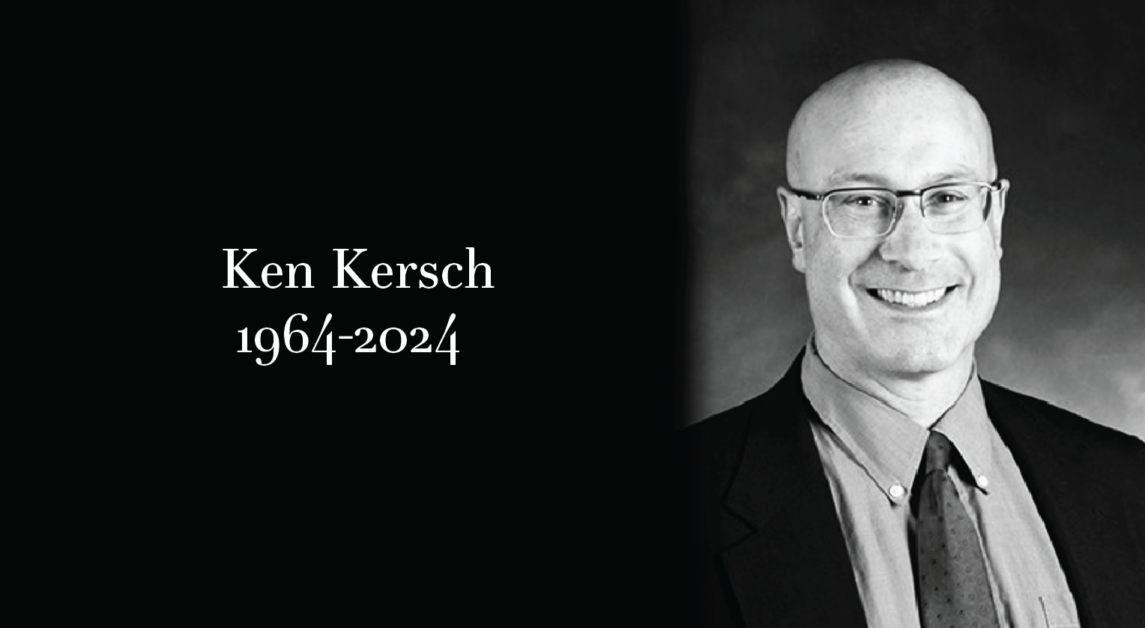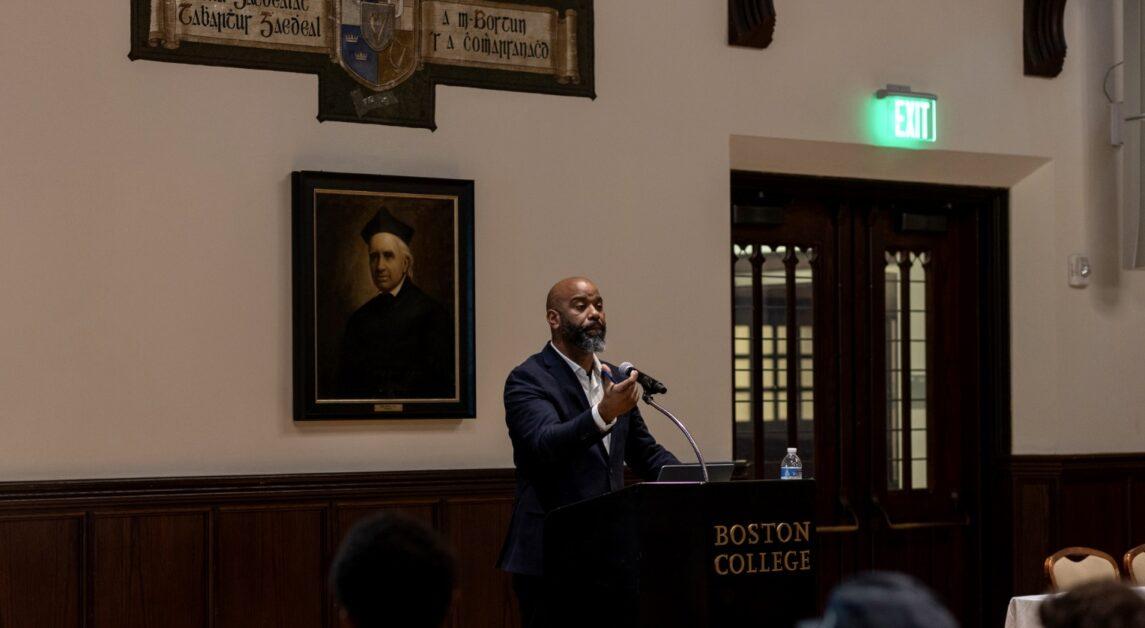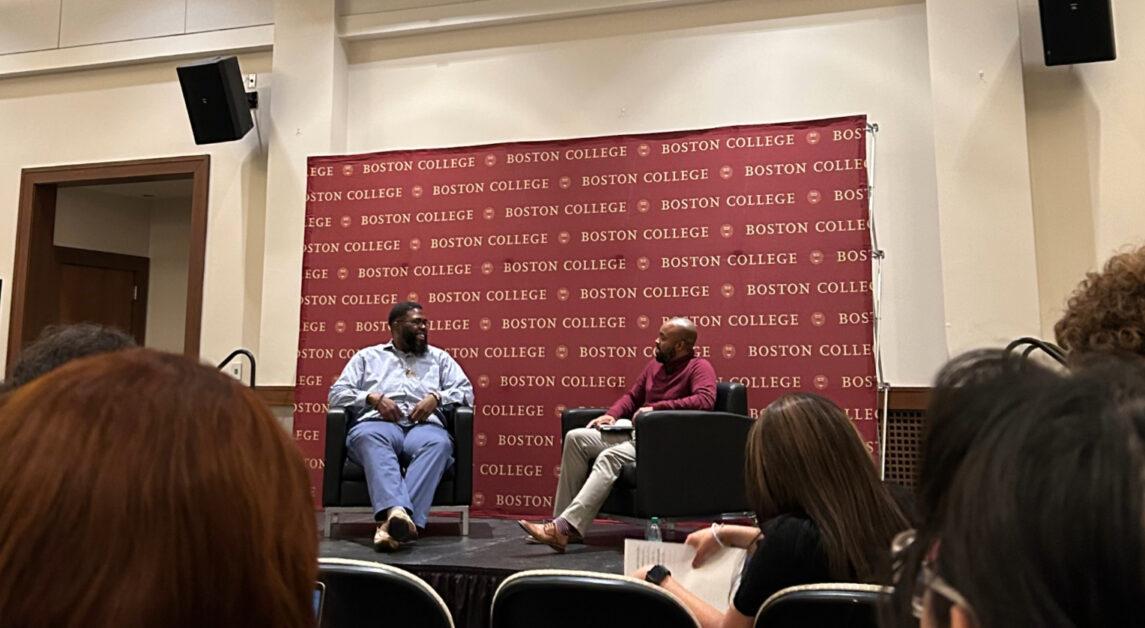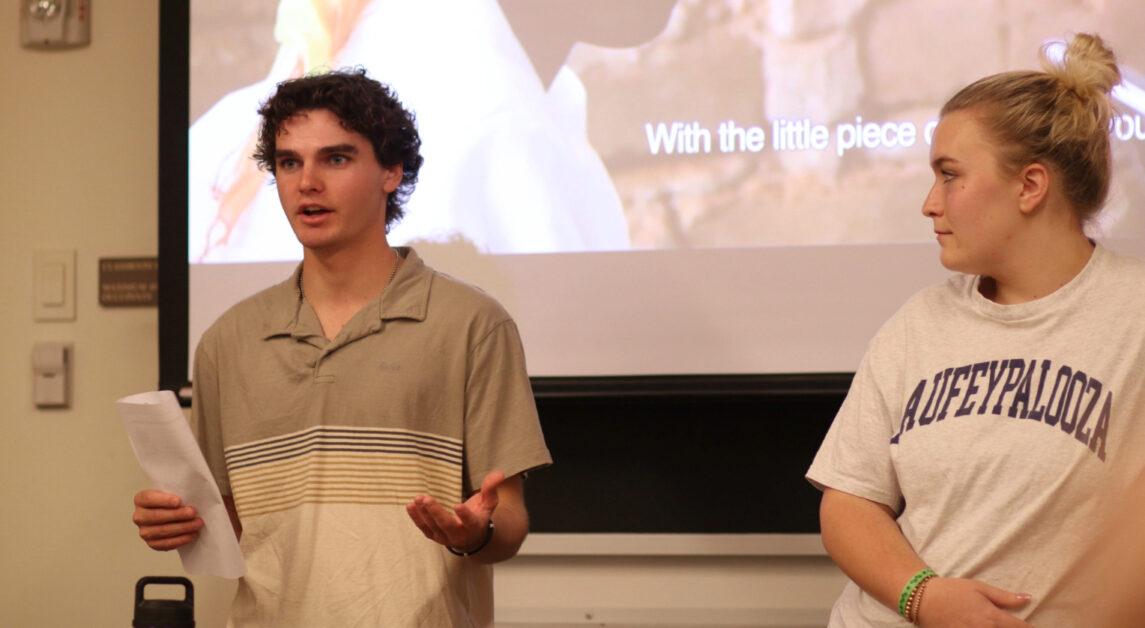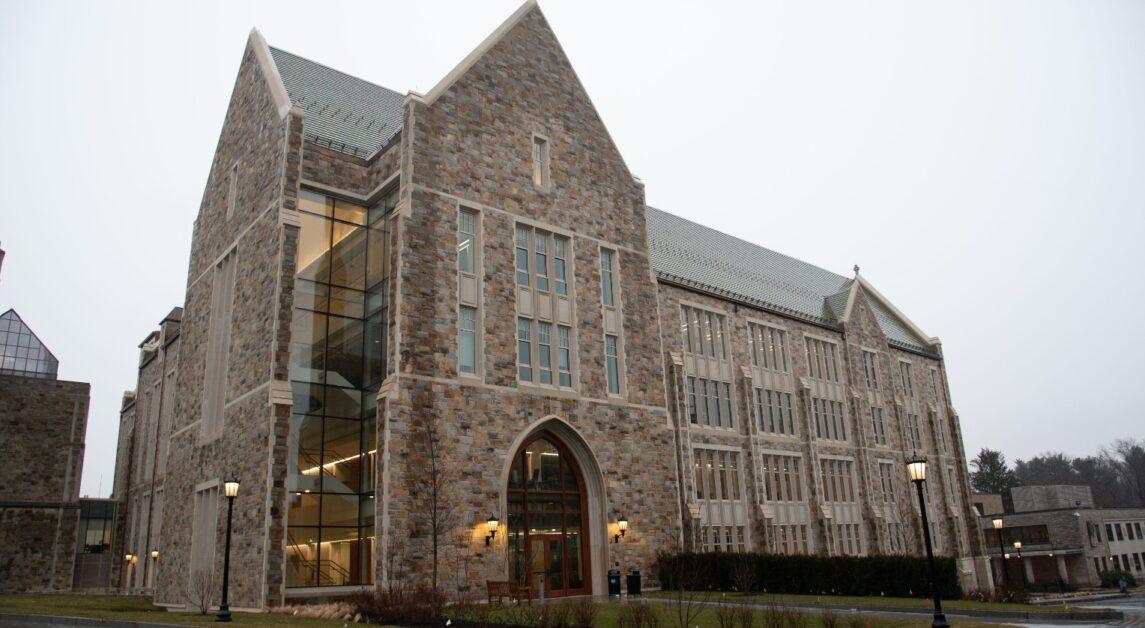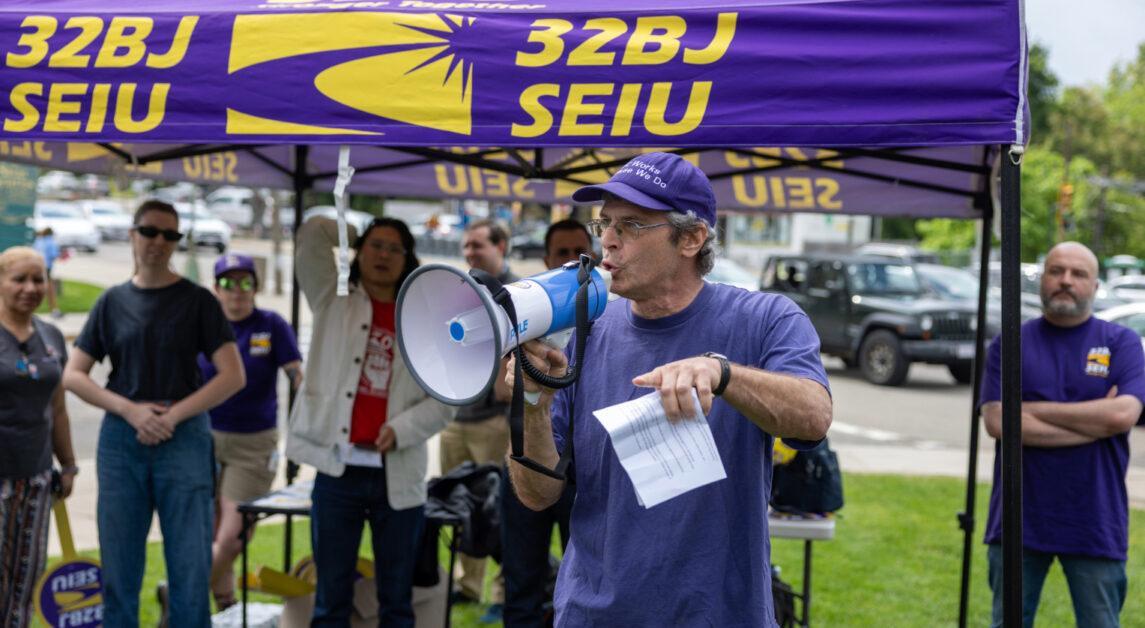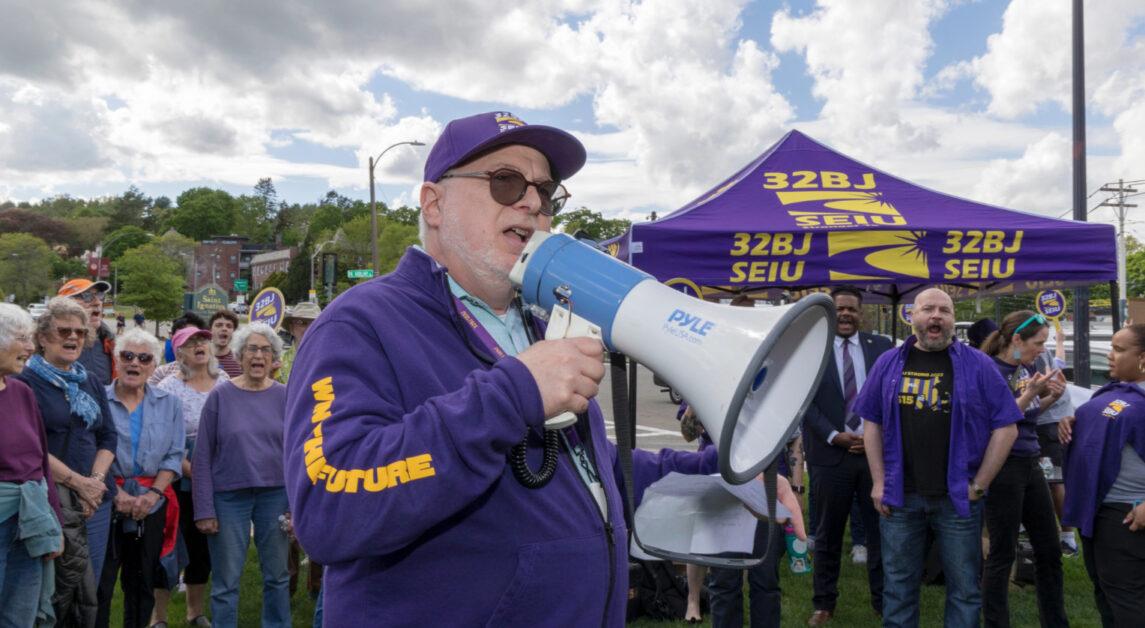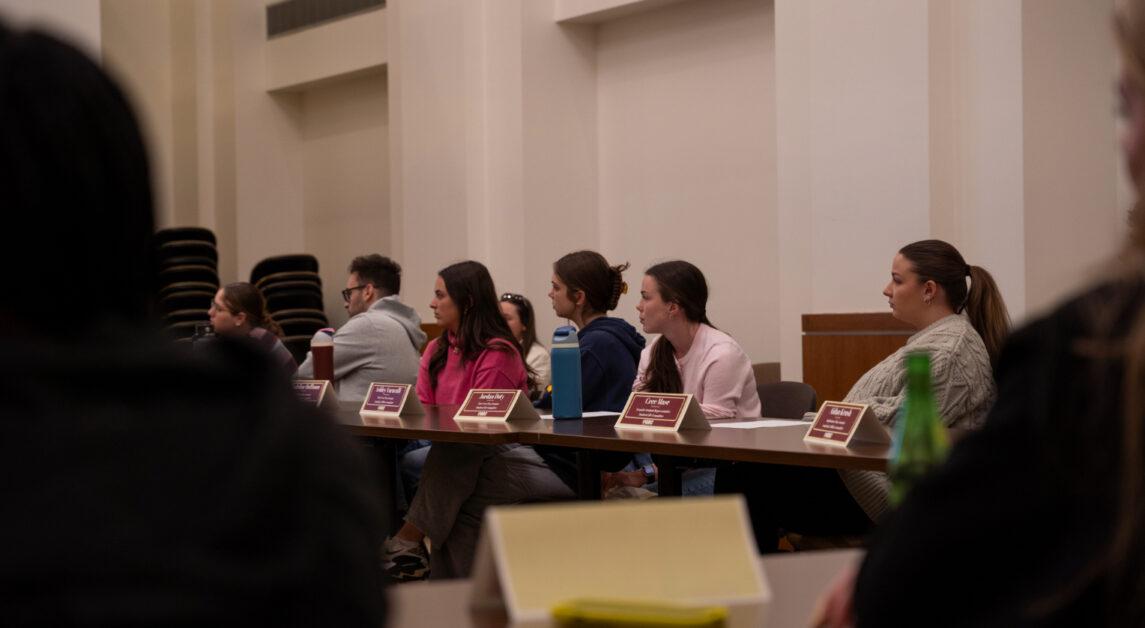After the Office of the Dean of Students updated the demonstrations policy of the Code of Student Conduct earlier this month, several students impacted by the policy or involved in the update said they were pleased with the clarifications but still hopeful for additional expansions of student free-expression rights.
The update clarifies an important point of contention in the old policy: whether students could individually register demonstrations. Last year, several members of Eradicate Boston College Racism were sanctioned for holding unregistered protests, largely, they said, because they were confused about whether they could individually register on behalf of a non-registered student organization. Dean of Students Thomas Mogan said that the policy has always existed but was unclear in the old text.
“It’s great to see the intentional speech surrounding the parameters of registration and other requirements,” Undergraduate Government of BC president and executive VP Akosua Achampong and Tt King, both MCAS ’18, said in an email. “However, there is always space for improvement and as the representatives of the student voice we are open to fielding feedback from all members of the Boston College community and continuing to work with administrators.”
Craig Ford, GMCAS ’22, who was the executive director of the Graduate Students Association last year and advocated for a more permissive policy, said in an email that one of the biggest differences with the update is that “Now generally applicable policies that were once available only after students would meet with Dean Mogan are—finally—generally available.”
“But—we should be clear—these adjustments hardly qualify as ‘changes’, because the policy has not, in fact, changed,” Ford said.
Ford highlighted that the updated policy still allows BC to withhold permits for demonstrations that could disrupt University operations or conflict with BC’s Jesuit, Catholic mission. He said that although these clauses were not written in the last iteration of the policy, they “are more like announcements of previously used criteria for declining to approve a demonstration.” Mogan has said repeatedly that the limitations in place are largely about ensuring the safety of participants.
“I think the changes in the policy, in some ways, definitely do align with the recommendations that we put forward,” said Cedrick-Michael Simmons, a Ph.D. student in sociology who was one of seven Eradicate members sanctioned last year. Simmons’s specific sanction was disciplinary probation.
Simmons was referring to recommendations made by Eradicate and the group Faculty for Justice, which put a plan forward after suggestions made by UGBC did not result in changes. Like Ford, he cited the clarifications on who can register a demonstration as a positive.
“It’s unfortunate that those positives had to come as a result, or in connection with, people like myself and a few others being treated like crap, to be honest,” Simmons said. “This isn’t a situation where administrators should be celebrated … it’s a matter of they did what they were supposed to do all along.”
“It’s not like BC has all of a sudden gone against the grain … it’s that BC has caught up, or almost caught up, to where other students are at,” he added.
Both Ford and Simmons said they were disappointed that the updated policy does not include some kind of advisory board on free expression, which Ford said could make the demonstration registration process more “communal.”
“As I’ve stated publicly in the past, freedom of expression is a Jesuit and Catholic value, and it is one that we are called to discern together as students, faculty, staff, and administrators,” Ford said.
Simmons said the idea of an advisory board is to make sure that oversight of the demonstration registration and other free expression-related processes has the possibility of some kind of appeal or review. Mogan said his office plans to establish a Student Advisory Board to provide feedback on initiatives, policies, and overall student experience, although it is unclear if it would have an involvement in free-expression issues.
“Until there’s a semblance of some kind of shared governance … then we’re probably going to be in the same situation we’re in, because it’s not about just what’s in the policy, it’s about how it’s implemented,” Simmons said.
Featured Image from Heights Archives

